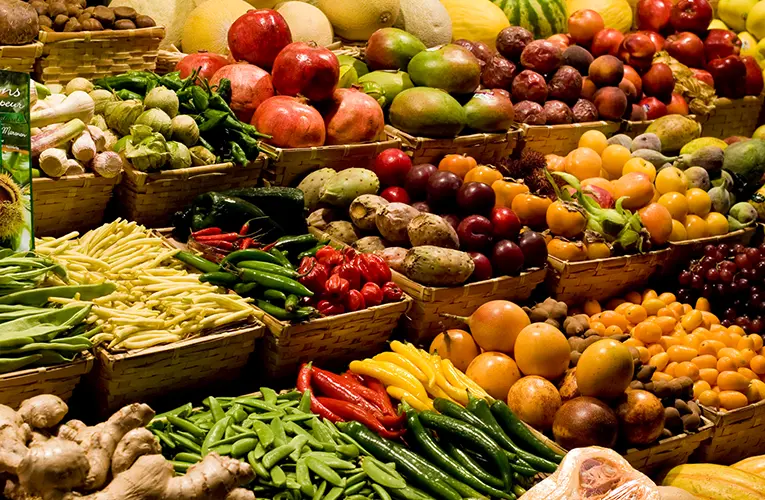“Junk Food Addiction: Understanding the Cravings”
### “Junk Food Addiction: Understanding the Cravings”
Junk food addiction is a growing concern in modern society, as the consumption of highly processed foods high in sugar, fat, and salt has become increasingly common. This guide delves into the nature of junk food addiction, explores the science behind cravings, and offers strategies for overcoming these cravings to promote healthier eating habits.
—
### 1. Defining Junk Food Addiction
#### **1.1 What is Junk Food Addiction?**
– **Definition:**
– Junk food addiction refers to a compulsive craving for and consumption of processed foods that are high in sugar, fat, and salt, often accompanied by a loss of control over eating habits.
– **Characteristics:**
– Frequent consumption of unhealthy foods despite awareness of their negative impact on health.
– Difficulty in moderating intake or resisting the urge to eat junk food.
—
### 2. The Science Behind Junk Food Cravings
#### **2.1 Biological Mechanisms**
– **Dopamine Response:**
– **Mechanism:** Junk foods often trigger the release of dopamine, a neurotransmitter associated with pleasure and reward.
– **Effect:** The pleasure derived from eating junk food can create a cycle of cravings and reward-seeking behavior.
– **Addictive Properties:**
– **Sugars and Fats:** High sugar and fat content can lead to physical addiction-like responses, similar to those seen with drugs or alcohol.
– **Neurochemical Changes:** Overconsumption of junk food can alter brain chemistry, making it more difficult to regulate cravings.
#### **2.2 Psychological Factors**
– **Emotional Eating:**
– **Mechanism:** People often turn to junk food for comfort during times of stress, anxiety, or depression.
– **Effect:** This can create a psychological dependence on unhealthy foods as a coping mechanism.
– **Habit Formation:**
– **Mechanism:** Repeated consumption of junk food can lead to habitual eating patterns, making it challenging to break the cycle.
– **Effect:** Established habits can be difficult to change, even when individuals recognize the need for healthier eating.
#### **2.3 Environmental and Social Influences**
– **Marketing and Accessibility:**
– **Mechanism:** Aggressive marketing and easy accessibility of junk food contribute to its consumption.
– **Effect:** Constant exposure and availability can make it harder to resist temptations.
– **Social and Cultural Norms:**
– **Mechanism:** Social gatherings, cultural practices, and peer pressure can normalize and encourage junk food consumption.
– **Effect:** Social settings can reinforce unhealthy eating habits and cravings.
—
### 3. Identifying Junk Food Addiction
#### **3.1 Signs and Symptoms**
– **Frequent Cravings:**
– Persistent and intense cravings for junk food, even when not hungry.
– **Overeating:**
– Consuming large quantities of junk food in one sitting or eating it excessively throughout the day.
– **Loss of Control:**
– Difficulty stopping or moderating junk food consumption despite attempts to do so.
– **Emotional Dependence:**
– Using junk food as a way to manage emotions or cope with stress.
#### **3.2 Diagnostic Criteria**
– **Self-Assessment:**
– Assessing one’s eating patterns, frequency of junk food consumption, and impact on daily life can help identify potential addiction.
– **Professional Evaluation:**
– Consulting with healthcare providers or nutritionists for a more thorough evaluation and diagnosis.
—
### 4. Strategies for Overcoming Junk Food Addiction
#### **4.1 Nutritional Interventions**
– **Healthy Substitutes:**
– Replace junk food with healthier options such as fruits, vegetables, nuts, and whole grains.
– **Balanced Diet:**
– Focus on a well-balanced diet that includes a variety of nutrients to reduce cravings and improve overall health.
#### **4.2 Behavioral Changes**
– **Mindful Eating:**
– Practice mindful eating techniques to become more aware of hunger cues and food choices.
– **Portion Control:**
– Implement portion control strategies to limit the intake of junk food and manage portion sizes.
– **Avoid Triggers:**
– Identify and avoid situations or environments that trigger junk food cravings.
#### **4.3 Psychological and Emotional Support**
– **Cognitive Behavioral Therapy (CBT):**
– Engage in CBT to address the underlying emotional and psychological factors contributing to junk food addiction.
– **Support Groups:**
– Join support groups or seek counseling to share experiences and receive encouragement in overcoming addiction.
#### **4.4 Lifestyle Adjustments**
– **Stress Management:**
– Develop healthy coping mechanisms for managing stress, such as exercise, meditation, or hobbies.
– **Physical Activity:**
– Increase physical activity to improve mood, reduce stress, and support overall health.
#### **4.5 Educational Approaches**
– **Nutrition Education:**
– Educate yourself about the nutritional content of foods and the impact of junk food on health.
– **Cooking Skills:**
– Enhance cooking skills to prepare healthier meals and snacks at home.
—
### 5. Long-Term Strategies for Maintaining Healthy Eating Habits
#### **5.1 Setting Realistic Goals**
– **Incremental Changes:**
– Set small, achievable goals for reducing junk food consumption and gradually incorporating healthier options.
– **Track Progress:**
– Monitor progress and celebrate successes to stay motivated and committed to healthier eating habits.
#### **5.2 Building a Support System**
– **Family and Friends:**
– Involve family and friends in your journey to adopt healthier eating habits and seek their support.
– **Professional Guidance:**
– Work with healthcare professionals or nutritionists to develop a personalized plan for overcoming junk food addiction.
#### **5.3 Creating a Healthy Environment**
– **Healthy Stocking:**
– Keep healthy foods readily available at home to reduce the temptation of junk food.
– **Smart Shopping:**
– Make informed choices when shopping for groceries and avoid purchasing junk food items.
—
### 6. Conclusion
#### **6.1 Summary of Key Points**
– Junk food addiction involves a complex interplay of biological, psychological, and social factors.
– Cravings for junk food can be driven by changes in brain chemistry, emotional eating patterns, and environmental influences.
– Effective strategies for overcoming addiction include nutritional interventions, behavioral changes, psychological support, and lifestyle adjustments.
#### **6.2 Encouragement**
– Recognize that overcoming junk food addiction is a process that requires patience, effort, and persistence.
– Embrace the journey towards healthier eating habits and focus on gradual, sustainable changes.
#### **6.3 Call to Action**
– Take proactive steps to address junk food cravings, seek support when needed, and commit to making healthier choices for long-term well-being.
—
This guide provides a comprehensive overview of junk food addiction, exploring its causes, effects, and practical strategies for overcoming cravings. By understanding the factors contributing to junk food addiction and implementing effective strategies, individuals can take meaningful steps towards healthier eating and improved overall health.










